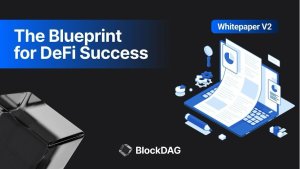Will robo-advisory firms survive sharing the market with big banks? Predicted compound growth rate stands at 68%
Robo advisers, which make up a class of financial adviser that provide portfolio management online with minimal human intervention, are in fashion, with over $50 billion in assets under management globally, 200% growth in 2015 only, and a potential volume of $255 billion by 2020, according to a research study by MyPrivateBanking. Wildly different numbers have […]

Robo advisers, which make up a class of financial adviser that provide portfolio management online with minimal human intervention, are in fashion, with over $50 billion in assets under management globally, 200% growth in 2015 only, and a potential volume of $255 billion by 2020, according to a research study by MyPrivateBanking.
Wildly different numbers have suggested by A.T. Kearney, a global management consulting firm that focuses on strategic and operational CEO-agenda issues facing businesses, that point to $2.2 trillion under management by robo advisors in 2020, equating to a staggering compound annual growth rate of 68%.
Easy-to-use interfaces and apps, reduced barriers of entry (deposits) and low fees are the main reasons for the rapid ascension in the popularity of robo advisory services, especially among younger generations, alongside some distrust of traditional services since the financial crisis of 2007-2008
Last week, automated investment service Betterment secured $100 million in new funding, to a total of $205 million and a valuation of $700 million.
Competitor Wealthfront, also valued at $700 million and with funding of $129 million having been raised, recently announced a complete redesign of its interface, which would include incorporating artificial intelligence that will look for hidden fees and cash drag, track account activity and automatically apply the company’s behavioral advice.
Robo advisers are gaining momentum, with, as previously mentioned, particular vigor among younger investors, with 60% of Wealthfront’s customer base being under 35.
One of the key factors is that users of robo advisers pay no fees for amounts of under $10,000 and after an annual 0.25% above that level, the costs are only a quarter of the 1% charged by traditional advisory firms. Still, Citigroup published a report indicating that this technology will not change the high-end advisory market:
“We see the advent of robo-advice as an example of automation improving the productivity of traditional investment advisors, and not a situation where there is significant risk of job substitution. Higher net worth or more sophisticated investors will, in our view, always demand face-to-face advice” – Citigroup
Analysts predict that major banks and mutual funds will too adopt robo-advice systems in the next few years with higher success rates as established brands attract more funds and confidence than startups, posing a potential threat to the disruptive entrepreneurs in the field. Deutsche Bank has already launched its own AnlageFinder in partnership with maxblue. Bank of America, under its Merrill Edge online trading subsidiary, is launching a robo-advisory platform that targets accounts under $250,000. Morgan Stanley and Wells Fargo are also joining the trend.
A research study by KPMG weighed the risk of cannibalization, with notes on Schwab: “Will some existing clients transition from more expensive service offers to Intelligent Portfolios? The answer is yes but each program is unique and Schwab is willing to experience potential cannibalization as it highlights the specific features and benefits of each offer.”
Will Trout, senior analyst at Boston-based Celent, commented on Vanguard’s proactive transfer of a significant amount of assets to a cheaper advisory program, from 0.70% to 0.30% fees: “By cannibalizing existing clients, these firms are making less money on the same assets. But so what? It is short-term pain, long-term gain,” and “the movement of these clients into automated channels should be considered a sort of discreet segmentation, i.e. a client-driven process that will ultimately help rationalize the firm’s sales structure.”
Fiona Grandi, Partner and US FinTech Leader at KPMG LLP said: “With current fees for digital advice ranging from zero to 0.30 percent and operating expense ratios for key equity ETFs now below 5 bps, acquiring assets is an important piece of making the economics work. But bank-brokerages need to view digital advice as a critical component in deepening relationships with clients so that the bank and brokerage is viewed as their preferred financial resource.”
With that in mind, KPMG called for banks to act now, by transforming their wealth management business and operating models, in order to capture a share of the market.









